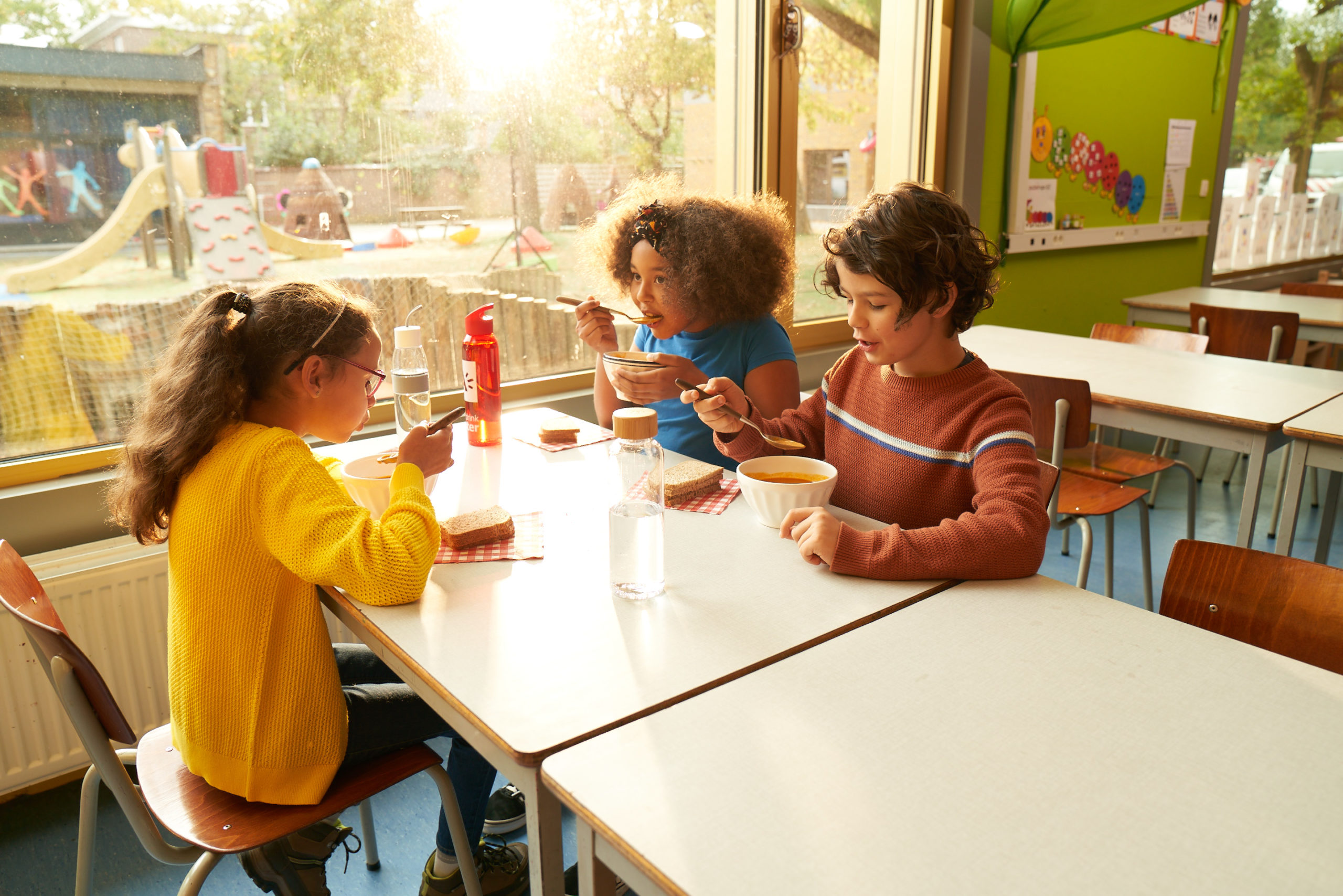FAQ
Curious about how we’re transforming school meals across Europe? Here, you’ll find answers to the most common questions about our mission, impact, and goals. This page will be updated periodically to keep you informed as the project evolves. Explore below to learn more!

About the SchoolFood4Change Project
The main goal of the SF4C project is to create a shift towards sustainable and healthy diets on a broad societal scale by directly impacting over 3,000 schools and 600,000 school children in 12 EU countries. The project collaborates with municipalities and schools across Europe and aims to provide a replicable good practice in the EU and beyond, which can be taken as an example by other cities, schools, policymakers and other actors to promote public health, territorial resilience, and systemic food system change.
The SF4C project employs a triple approach to achieve its goals:
- Innovative Sustainable Food Procurement: Changing the way food and ingredients for school meals are sourced by local/ regional governments and school organisations towards more sustainable practices.
- Planetary Health Diets & Cooking: Training and empowering school cooks and local key players to prepare healthy, sustainable meals and to pass on their knowledge about the positive effects of the changes.
- Whole School Food Approach (WSFA): Creating a healthy food culture in and around schools. This holistic concept integrates food and education to address the composition of school meals and the functioning of school canteens, including practical teaching, learning activities and the active participation of pupils and teachers. It also involves the wider school community including caregivers, farmers, businesses, and civil society.
The long-term benefits include improved public health, reduced environmental impact, enhanced food education, and stronger regional food systems. The project aims to create a sustainable and resilient food future for all EU residents, particularly benefiting children and youth, vulnerable and low-income groups.
Environmental Sustainability
Food production in the world has a huge impact on the climate, freshwater resources, land use and thereby the ecosystems and the species living there. The project aims to reduce greenhouse gas (GHG) emissions by promoting more plant-based food content, reducing food waste, and implementing low-carbon food chains. The aim is to contribute to a 25% reduction in GHG emissions from school food procurement. In ecological production, pesticides are not allowed. By increasing the amount of ecologically produced food served in the school canteens the project decreases the pressure on biodiversity. Teaching children to cook, grow and understand where their food comes from and what effect it has on the environment equips them with the skills and knowledge to make sensible decisions, both now and in the future, about their own health and that of the planet. Learning about healthy eating, animal welfare, ways of reducing food waste and sustainable and ethical food not only helps children make informed food choices, but also helps them understand the wider food, sustainability, and health debate.
food education and the whole school food approach
Training of school chefs facilitates the development of more nutritious, healthy and tasty dishes served in the school canteens. By promoting healthy diets rich in vegetables, fruits, and legumes, and reducing the consumption of animal-based foods, the project aims to reverse the rise in overweight and obesity rates among children. The project will also conduct scientific health impact assessments in Vienna, Madrid, Milan, and the region of Dordogne in the beginning and the end of the project to measure the intervention’s impact on children’s health status. Introducing food education in the curriculum gives a long-term effect on children’s and community health.
By providing healthy and sustainable meals in schools and integrating food education into the curriculum, the project aims to instil lifelong healthy eating habits in young people. The involvement of children in food-related activities and decision-making processes at school empower them to make informed food choices.
school canteens and chef training
By providing healthy and sustainable meals in schools and integrating food education into the curriculum, the project aims to instil lifelong healthy eating habits in young people. The involvement of children in food-related activities and decision-making processes at school empower them to make informed food choices.
School canteens serve more meals that are innovative, climate-friendly, healthy, and linked to local identities. The project has developed new menus and recipes that are sustainable and appealing to children, reducing food waste and promoting healthy eating habits.
Innovative procurement
Public procurement, i.e. the purchase of food and ingredients by public organisations/ municipalities for use in school canteens, is an area where SF4C sees a lot of potential for change. SF4C has therefore developed innovative procurement criteria and models that can be used as a concrete template and inspiration for those responsible to ensure that school meals become healthier and more sustainable (see here). This includes using dynamic purchasing systems, SDG-aligned food tendering, and digitalizing procurement procedures.
Municipalities and regional/national governments play a crucial role in implementing and supporting the project’s initiatives. The project engages with local, regional and national policymakers to align school food systems with broader sustainability and health goals. This includes creating supportive policies and frameworks for sustainable food procurement and education.